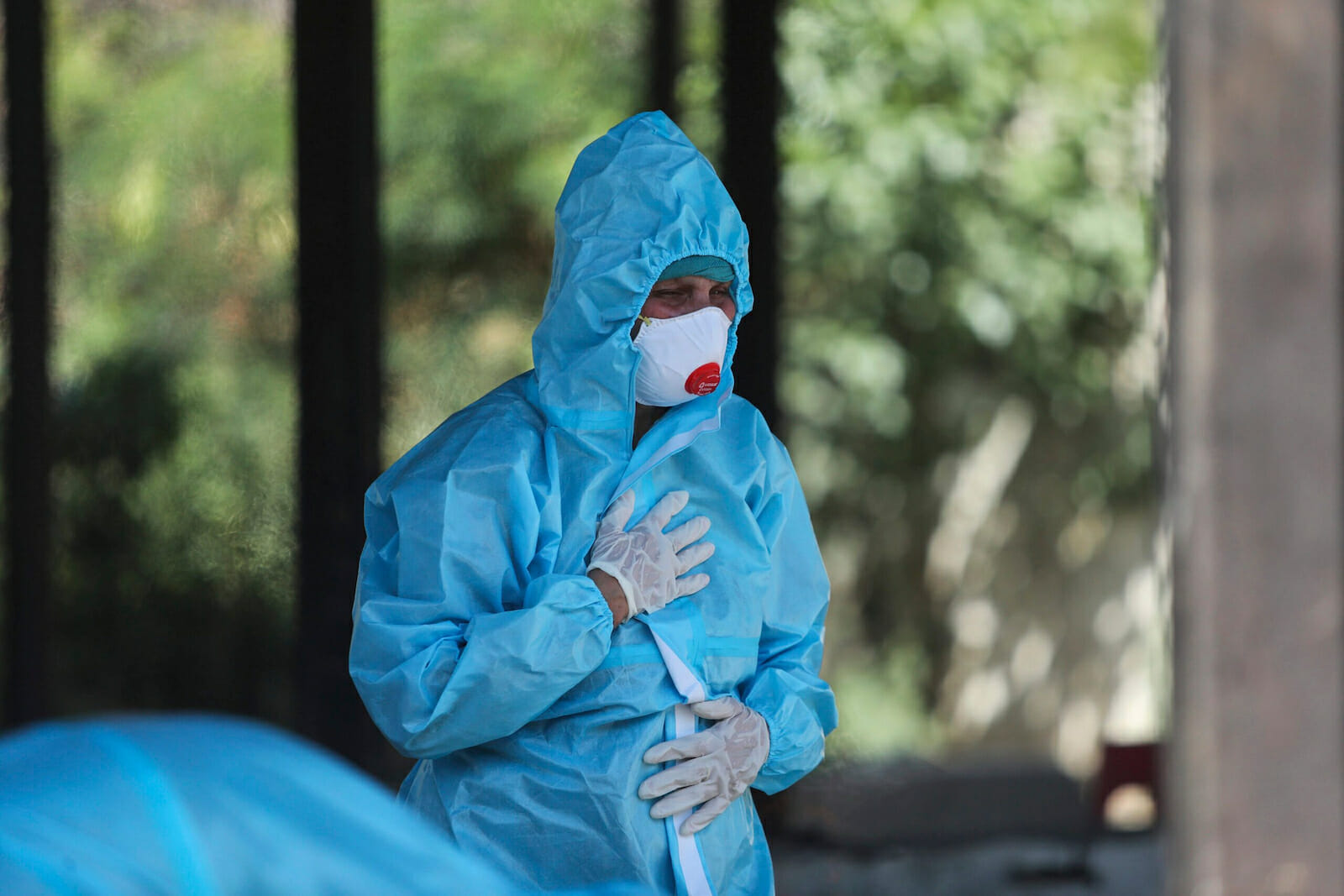
Forgetting Citizenship: Australia Suspends Flights from India
As India is being devastated by COVID-19 at a daily rate of 400,000 cases, Australia has taken the decision to suspend all flights coming into the country till mid-month. The decision was reached by the Morrison government with the blessing of the State Premiers and the Labor opposition.
Not happy with banning flights from India, the Morrison government promises to be savage in punishing returnees who find ways to circumvent the ban (for instance, by traveling via a third country). Citizens who breach the travel ban can face up to five years imprisonment and fines up to $51,000. “We have taken drastic action to keep Australians safe,” explained the Treasurer Josh Frydenberg. The situation in India was “serious”; the decision had only been reached after considering the medical advice.
According to a statement from Health Minister Greg Hunt, it was “critical the integrity of the Australian public health and quarantine systems is protected and the number of COVID-19 cases in quarantine is reduced to a manageable level.”
The decision fails to carry any weight. It did not take long for more alert medical practitioners to wonder why the approach to India was being so selectively severe. Health commentator and GP Vyom Sharma thought the decision “incredibly disproportionate to the threat that it posed.” Sharma is certainly correct on this score in terms of international law, which requires the least restrictive or least intrusive way of protecting citizens.
Then there was the issue of the previous policies Canberra had adopted to countries suffering from galloping COVID-19 figures. A baffled Sharma wondered, “Why is it that India has copped this ban and no people who have come from America?” Former race discrimination commissioner Tim Soutphommasane seconds the suspicions. “We didn’t see differential treatment being extended to countries such as the United States, the UK, and any other European country even though the rates of infection were very high and the danger of its arrivals from those countries was very high.”
The Australian Human Rights Commission has also asked the federal government to justify its actions. “The government must show that these measures are not discriminatory and the only suitable way of dealing with the threat to public health.”
In the face of such behaviour, aggrieved citizens are left with few legal measures. Australia, among liberal democratic states, is idiosyncratic in refusing to adopt a charter of rights. Down Under, parliamentarians are supposedly wise and keen to uphold human rights till they think otherwise. (Human rights, the argument goes, would become the fodder of lawyers and judges, interfering with the absolute will of Parliament and the electors.) The Australian Constitution is hopelessly silent on the issue of citizenship. Left at the mercy of legislative regulation, Parliament and the executive can be disdainful towards their citizens without consequences.
One avenue remains the Geneva-based UN Human Rights Committee. On April 15, the UNHRC ruled on the case of two petitioners of FreeAndOpenAustralia.org (formerly StrandedAussies.org) that the Morrison government had to “facilitate and ensure their prompt return to Australia.”
Represented by the notable sage of international law Geoffrey Robertson QC, the petitioners argued that Australia was in breach of Articles 12(4) and 2(3) of the International Covenant on Civil and Political Rights. The first article provides that no one shall be arbitrarily deprived of the right to enter his own country; the second provides for “effective” remedies to be granted to those whose rights and freedoms have been breached under the ICCPR. The petitioners also freely admitted that they had no issue with quarantining for 14 days on returning to Australia.
In the words of Free and Open Australia spokesperson Deb Tellis, the Commonwealth should “use its power to expand quarantine facilities, and end travel caps that are being dictated by the states. There are thousands of our fellow citizens suffering [the] loss of their relatives and loss of their jobs.”
The government has preferred a meaner, penny-pinching approach in coping with quarantine, reducing flights when needed rather than expanding facilities to accommodate a greater number of infected arrivals. The hotel quarantine system continues to receive effusive praise from Australian Prime Minister Scott Morrison as being 99.99 percent effective. But it is impossible for him, and his ministers, to conceal the fact that they do not trust, and are unwilling, to use other facilities and expand existing ones.
Since last November, there have been 16 COVID-19 leaks across the cities of Melbourne, Sydney, Brisbane, Adelaide, and Perth from quarantine hotels. At this writing, another quarantine leak is being reported in Western Australia, involving the now customarily infected hotel security guard and the inevitable seepage into the community. The problem of airborne transmission continues to plague, as does the uneven provision of personal protective equipment. No national standard of quarantine has been formulated throughout the country, with each state adopting its own approach. Audits of the ventilation systems in many such hotels remain sketchy.
Western Australian Premier Mark McGowan, who recently imposed a lockdown of the Perth and Peel areas and may well do the same thing over the next few days, suggested that the Commonwealth be generous with some of its facilities. Why not use the RAAF Curtin Air Base, or the immigration detention centres of Yongah Hill and Christmas Island? “It’s kind of staring us in the face and there are things that could assist, it’s just that the Commonwealth doesn’t want to do it.”
The evidence so far is that facilities such as Howard Springs in the Northern Territory tend to work. It features single-storey cabins, segregated air conditioning systems, outdoor veranda space, and, in the vicinity, a fully functioning hospital. No leaks have been recorded. And location is everything: distant from densely populated areas. This government, however, is miserly on the issue of quarantine, an obligation it has transferred without constitutional justification to State premiers who fear both the virus and its electoral consequences.

